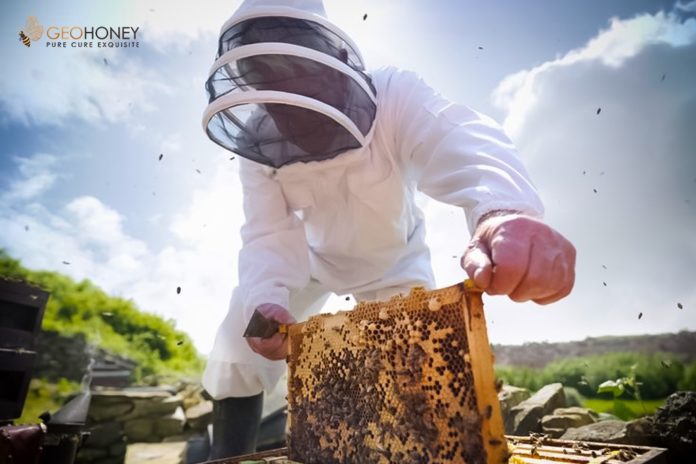Honey bees are the significant pollinators of the world’s cultivated crops. Being ectothermic, the temperature of their surroundings decides the movement of honey bees. Subsequently, environmental change, described by too hot or too cold temperatures, could radically affect their behavior, biology, and distribution. Indirectly, environmental change influences honey bees through their flower resources and natural enemies.
The differential reaction of insects and plants to changed temperature could make temporal (phenological) and spatial (distributional) mismatches with demographic consequences for the species involved. Unfortunately, these climatic conditions are hitting the French beekeepers. In the last two decades, France has been suffering badly due to bad weather and environmental changes that will impact raw honey production. And this is all because of the earlier & shorter flowering seasons, making it difficult for the bees to gather a sufficient amount of nectar.
France is mainly divided into 22 districts, and each one produces honey. The largest maker is the Rhone-Alps locale, and the smallest is the island of Corsica. France has one of the most seasoned and best-managed honey industries globally. Below is some popular honey varieties that originated from France –
- Acacia Honey
- Blackberry Honey
- Alfalfa Honey
- Clover Honey
- Eucalyptus Honey
- Buckwheat Honey
- Heather Honey
- Lavender Honey
- Dandelion Honey
- Linden Honey and many more
But beekeepers in France feel there will be virtually no honey this year because of the late frost & rains. As the flowering seasons have become short, bees cannot find food for themselves and are dying of hunger. So, for the second year in a row, France will see almost zero harvests for rosemary, thyme, and heather honey production and chestnut and sunflower honey harvests. In addition, pine, mountain, and forest honey harvests have also not been up to a point due to the small flowering season.
As the harvest was low this year, the beekeepers association UNAF said that yearly consumption of honey in France is about 40,000 tonnes and 30,000 tonnes of honey is imported. Export volumes this year will be extremely low. Cold, windy & wet conditions in many French regions have suffered frost. The years 2014 & 2020 were considered good in honey production, but there has been a constant decline in the last two years.
French beekeepers have cautioned that honey creation is at generally low levels this year, and just between seven to eight tons of natural honey have been produced – only 50% of last year’s production. Along with this, honey bee states are intensely affected by environmental change, the appearance of predatory species like Asian hornets, and the monstrous utilization of pesticides.
Pesticides should have been prohibited for all time in France last year; however, the public authority has approved their utilization to assist farmers in cultivating sugar beets.
Numerous European nations have experienced significant production decreases and Turkey and the United States. Therefore, there will be less French honey in stores; however, a ton of foreign honey varieties if the same conditions persist in the country,” said Christian Pons, leader of UNAF.
Universally, different studies have connected environmental change to a potential decrease in honey bees. Another study depicts how a mismatch between blossoming time because of dangerous global warming and honey bees’ activity prompted wellness losses in the insect.
Honey bees can’t adapt if it is excessively hot. Assuming it is excessively chilly, they will be stressed to deliver more honey. Likewise, inconvenient rains affect flowering and nectar availability. But urban centers can do their piece to keep the buzz alive. A recent study observed that metropolitan communities are an asylum for pollinators when contrasted with adjoining farmlands. A study proposes that local parks in urban areas support biodiversity, including insects.
Individuals can plant native trees in their territories and keep plants of local fruits in the soil and their windows and balconies. Existing green spaces and trees should be safeguarded. It emphasizes that awareness programs among the neighborhood youth and in local locations are basic to sharpen them towards honey bees and change their common perception from stinging pests to helpful allies. When bees are struggling to cope with the climatic challenges in France, the best way to handle & save them is not to handle them at all. Let us all do our bit to save them and make the earth a better place for humans and bees.




